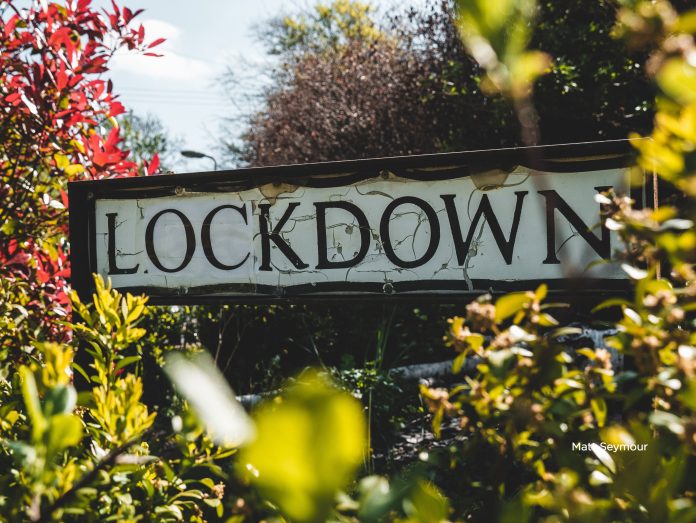After President Akufo-Addo’s address to the nation on COVID-19 last Sunday, one wonders what the key considerations were for the ban on the restriction of movement popularly known as the Lockdown to be lifted.
Prior to the address, expectations were high, experts analyzed our COVID-19 situation and proposed solutions they hoped the President would consider.
Some assumed views that the President might look at; Health and the Economy, to arrive at a decision on the way forward.
The decision to lift the ban on movement as announced by the president was purportedly based on about seven key factors: Ghana’s ability to undertake aggressive contact tracing of infected persons, the capacity to test, expansion in the numbers of our treatment and isolation centres, a better understanding of the dynamism of the virus, ramping up of our domestic capacity to produce our own personal protective equipment, and sanitizers, supposed successes chalked at containing the spread of the virus in Accra and Kumasi and the severe impact on the poor and vulnerable.
However, one would ask, did Ghana meet the World Health Organization’s (WHO) conditions for lifting COVID-19 related restrictions?
The World Health Organization (WHO) set some conditions to guide nations; should they consider lifting COVID-19 related restriction. Disease transmission should be under control, Health systems are to “detect, test isolate and test every case and trace every contact,” Hotspot risks should be minimized in vulnerable places, such as nursing homes, schools, workplaces and other essential places should have established preventive measures, the risk of importing new cases “can be managed” and communities are fully educated, engaged and empowered to live under a new normal.
Government’s defence to public criticism is that the decision to lift the partial lockdown in Greater Accra and Greater Kumasi was based on Ghana’s COVID-19 infection rate data and the advice of health experts. The imposition was lifted based on the data collected in the past three weeks.
One finds it a bit strange that health experts would advise the president to lift the ban on movement. The Ghana Medical Association (GMA) in March 2020 called on the President to declare a nationwide lockdown. The GMA in a press statement on National Response to COVID-19 stated that “The GMA fully conscious of the threat posed by this pandemic, the disturbing trend of community spread and the obvious inadequate capacity of the nation’s health system to deal with the increased numbers of COVID-19 infection especially in the severe to critical cases, calls on His Excellency the President of Ghana to declare a nationwide lockdown with the exception of essential services with immediate effect.
The lockdown though not a comfortable decision for the citizens and leaders alike is a reasonable, proven and effective option backed by science.”
If it is indeed the case that we have made so much progress to contain the spread of the virus in Ghana then it is refreshingly good. However, we doubt because the virus is still galavanting in the public and the least mistake and risk can plunge the country into chaos.
Could it really be true that this decision was made on health grounds?
Professor Henry Kwasi Prempeh, the Executive Director of the Center for Democratic Development Ghana (CDD-Ghana) in an article “Lifting of partial lockdown: Government and Citizens must keep their end of the bargain” expresses some thoughts that one can not help but agree with the professor.
“We should not, of course, read the lifting of the partial lockdown to mean that the public health danger has passed; it has not, hence the retention and extension of social distancing rules, including the ban on group gatherings. I interpret the lifting of the stay-at-home order to mean that, the Government is fully capable of doing what it must continue to do to contain the spread of the virus (e.g, tracing, isolating, testing, treatment, public education, and enforcement of the remaining rules) without having in place a lockdown or stay-at-home order. If that is the case, then the cost of keeping the lockdown would appear to outweigh the public health benefit of maintaining it, hence the decision to lift it.
The stay-at-home order was one of the most prudent measures that were put in place notwithstanding the economic implications. The danger here is, many might wrongly interpret this as business as usual. Why might this be the case? Just minutes after the ban was lifted, a video circulating on social media showed scores of people jubilating on the streets and totally disregarding social distancing protocols. With such an incident one has cause to worry and also to ask if the Ghanaian can be trusted with their own safety in the midst of this deadly virus.
An African Proverb sums it all up with the saying “When you see your neighbours’ beard on fire, soak yours in water.” The actions and inactions of the countries in the developed world are evident for us to see. Some argue that we must not just adopt blanket solutions like a lockdown from the West because our economies and social dynamics differ.
One thing is sure, Government will not be spared the blame if the nation sees an increase in the number of COVID-19 cases.
Edem Cedar – African Post Online

Edem is a writer and loves to read. He believes that writing is an instrument of expression and an advocator of ideologies that can cause significant changes to our current dispensation and the future.















